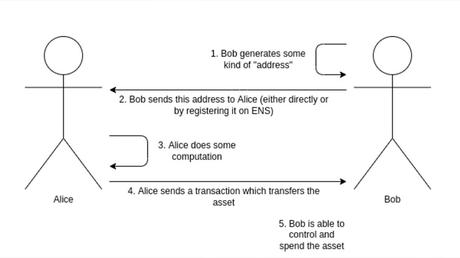
Vitalik Buterin discloses Ethereum’s “greatest remaining obstacle.”
While the concept of stealth addresses may appear complex in theory, Buterin has previously referred to it as a “low-tech approach” compared to other Ethereum privacy solutions.
Vitalik Buterin, the co-founder of Ethereum, has proposed a potential solution to Ethereum’s “greatest remaining challenge” — privacy.
Buterin acknowledged the need for a privacy solution in a January 20 blog post because all data that is stored on a “public blockchain” is by default public.
Then, he devised “stealth addresses,” which he claims have the potential to protect users by anonymizing peer-to-peer transactions, nonfungible token (NFT) transfers, and Ethereum Name Service (ENS) registrations.
An incomplete guide to stealth addresses:https://t.co/21Q18BrD30
— vitalik.eth (@VitalikButerin) January 20, 2023
In his blog post, Buterin explained how two parties can conduct anonymous blockchain transactions.
A user searching for assets will initially generate and store a “spending key,” which will be used to generate a stealth meta-address.
This address is then transmitted to the sender, who can perform a cryptographic operation on the meta-address to generate a stealth address for the recipient.
The sender can then transfer assets to the recipient’s stealth address while simultaneously publishing a temporary key to verify that the recipient is the owner of the stealth address.
Consequently, a new stealth address is generated for every new transaction.

What is stealth address?
Buterin stated that a “Diffie-Hellman key exchange” and a “key blinding mechanism” would be required to conceal the connection between the stealth address and the user’s meta-address.
Stealth addresses have been touted as a solution to on-chain privacy issues since 2014, when they were finally addressed. However, only a small number of solutions have reached the market to date.
Also, this is not the first time Buterin has discussed stealth addresses in Ethereum.
In August, he described stealth addresses as a “low-tech method” for the anonymous transfer of ERC-721 tokens, also known as NFTs.
The co-founder of Ethereum explained that the proposed stealth address concept provides privacy in a different manner than the currently OFAC-approved Tornado Cash:
Buterin provided the following guidance to Web3 projects developing a solution:
He insisted that stealth addresses could result in “long-term usability issues,” such as social recovery issues. Nonetheless, he is confident that the issues can be resolved expeditiously:
“In the longer term, these problems can be solved, but the stealth address ecosystem of the long term is looking like one that would really heavily depend on zero-knowledge proofs,” he explained.
